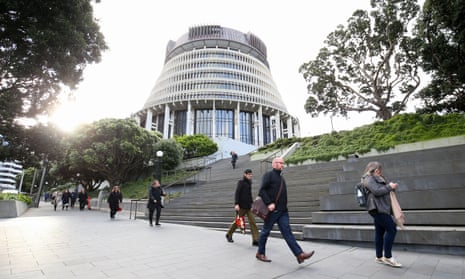Democracy is a human right that in many ways underpins all other rights.
But the symptoms of weakened democracy are all around us. Even here, in New Zealand, where we have one of the world’s least corrupt and most stable democracies, we’re not getting it right.
When I first entered parliament five years ago, there was little in electoral law to guarantee equal access, or universal suffrage. And there were even fewer protections against the rising tide of elite and foreign interference.
Inquiries have found our mixed-member proportional (MMP) system backsliding towards an American style “two-horse race” where the two major parties consolidate power. And yet recommendations to stop this happening – and to secure the sanctity of every vote, which is exactly what MMP is meant to uphold – were buried by then justice minister Judith Collins.
New Zealand was also one of the few modern democracies anywhere in the world where prisoners could not vote. The supreme court declared this was a breach of the Bill of Rights Act. The tribunal set up to investigate breaches of our founding document, Te Tiriti o Waitangi, found that disenfranchising prisoners especially violated the rights of Māori.
Young people aged 16 and 17 years old have been guaranteed freedom from age discrimination for more than three decades, which the court of appeals has confirmed includes the right to vote. And yet, here we are, with parliament repeatedly refusing to lower the voting age.
For more than 150 years, New Zealand’s parliament has reserved seats for Māori. Every part of the country is covered by both a “general” electorate and a Māori electorate. Forty-five years ago, the government introduced the “Māori electoral option” whereby Māori could choose whether to vote for Māori seats or general seats. But successive governments have denied Māori proper access to this system thanks to an arbitrary five-year stand down rule for switching roles.
Disfranchisement isn’t only a historical problem. New Zealanders stuck overseas during Covid-19 were left out by a nonsensical rule that requires voters to return home at least once every three years to stay on the electoral roll. Our last general election took place at the height of border closures and, as such, thousands lost their right to have a say in how their country is run.
The absence of an upper limit on the amount that can be donated to a politician or party has also rendered New Zealand’s democracy vulnerable to the influence of big money. Democracy is for everyone, not those with the deepest pockets.
Every MP in parliament who is not a minister is allowed under the rules of the New Zealand parliament to propose legislation. Those members’ bills all go into our famous biscuit tin and get pulled out at random so they can be debated. Some of these bills make it through and change the law, others don’t and fall at the first hurdle. And others shift the debate to such an extent that the government itself adopts the proposal.
Which is where my strengthening democracy member’s bill comes in. With the vocal support of affected communities and experts, over the last few years the government has been taking bits of my bill and introducing them incrementally. The wins have been significant, including: a ban of foreign donations; lowering the threshold for secret big money donations to $5,000; the repeal of the blanket ban on prisoner voting to restore the rights of prisoners serving a term of less than three years; allowing Māori to switch rolls at any time (except in a byelection); and extending voting rights to overseas New Zealanders for the 2023 election.
The government has also initiated an independent electoral review that aims to further strengthen our democracy, with experts making recommendations by the end of 2023.
There remains much more to do. We still have no upper limit on political donations. Young people sit outside democracy while they can work and pay tax, leave school, and protest their rights to a sustainable climate, mental healthcare, inclusive education, and myriad other issues we decide in parliament. Issues that often have the most lasting impact on their lives. And where do we fit in the spectrum of human rights-based systems if our most fundamental rights can be denied based on moral judgement of the state? Full prisoner enfranchisement is a marker of a strong democracy.
Strong democracies need election laws that are frequently updated. Updated to respond to independent reviews, reflect emerging problems, and to increase the accessibility and representation of political decision-makers.
Thanks to the luck of the biscuit tin, MPs will soon have the chance to build on recent change and secure a fair, inclusive democracy for generations to come. My bill was drawn in May and will have its first reading in parliament soon. We are calling on the Labour government to support the bill at first reading so it can go to select committee where we can hear from the public without the spectre of party politics.
That would be due process. It would put democracy at the heart of our collective work as lawmakers, and representatives of the people.
Golriz Ghahraman is a member of the New Zealand House of Representatives for the Green party
